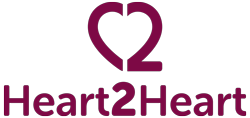CHF Response to ACHD Review
Children’s Heart Federation contribution to ‘Improving everyday life for adults with congenital heart disease
About The Children’s Heart Federation
The Children’s Heart Federation (CHF) is the leading national charity and the umbrella body for voluntary organisations working to meet the needs of children and young people with congenital and acquired heart conditions (CHD) and their families. Our vision is that all children with heart conditions have both their medical and social needs met so that they can live life to the full.
Working for every family affected by CHD
The charity has 23 member groups which have a focus either on a specific heart condition or have a geographical focus, providing support to families in a region or connected to a particular paediatric cardiac unit. CHF’s remit and focus is broader – works closely with The Sommerville Foundation (previously GUCH P.A), the national organisation for adults with CHD, and while our focus is on children and young people, we are concerned that high quality lifetime CHD services should be available, from before birth to end of life.
The success of paediatric cardiology and surgery has led to a significant increase in the population of adults with congenital heart disease. Adults with congenital heart disease now outnumber children with this condition and the adult population will continue to rise.
It should be noted that a high proportion of adults with learning disabilities have congenital heart disease and the number of learning disabled adults is also increasing, so it needs to be recognised that CHD is a life long condition, which affects quality of life.
Views on the Proposed Model of Care
The overwhelming view of parents is that the model of care in adult services should reflect the model of care for children’s services.
Parents of children and young people with a complex heart condition often express concern regarding the transition between paediatric and adult congenital heart disease service. They are worried that their child will stop complying with treatment and so believe that continuing adult care at the cardiac centre that is currently providing treatment will ensure better continuity and quality of care.
Some young people with CHD share that view, others, however, are keen to move to an adult unit. They recognise that they may move several times throughout their life want reassurance that adult centres all offer a high quality of care aware that currently services appear variable. They also want a system in place to ensure that wherever they are their medical records are accessible and transferable. There are a number of advancements in the provision of online or e-records for various patient groups such as the successful renal patient-view system. Such online record keeping giving the individual patient control, have the potential to improve continuity of care and transition as well as empowering patients to live with long-term conditions such as CHD. Dealing with three levels of care at the specialist, intermediate and local level centres means that the transfer of patient records is a serious issue needing consideration, and such an online system would CHF feels be a positive development.
Views on the Draft National Designation Standards
The NHS GUCH Guide launched in 2006 made it clear that “all adults with congenital heart disease, whatever the complexity” are to be seen “by an expert from a specialist centre at least once” and CHF strongly supports this.
CHF has for sometime been concerned with the number of units carrying out surgical procedures on adults with CHD welcomes the plan to create a more cohesive high quality service where expertise is concentrated in a small number of units.
Recognising that the majority of adults with CHD will not require surgery, we support the plan to raise awareness of congenital heart disease in other parts of the NHS, including primary care.
We support the care network model (where the network consists of a local centre, an intermediate centre and a specialist centre) because we believe that this provides improved access to services whilst maintaining an expert overview. There must be adequate resourcing of these networks and it is important at all times to stress that at intermediate level centres the care provided is still specialist and excellent to reassure patients and parents.
In view of the fact many people with CHD have co-morbidities and as they get older may develop additional health needs, we agree that the care network must be integrated into other care pathways an important example being maternity care.
Pregnant patients with complex cardiac conditions should be managed at a specialist centre, whilst those with simple conditions may be managed under shared care arrangements at a local GUCH centre, although they should be referred to the specialist centre for fetal ECHO.
We believe that it is important that this is monitored by Clinical Commissioning Groups to ensure consistent standards of care.
Plans must be put in place for services for adults with congenital heart disease to both secure and build a specialist workforce for a growing population with proper continual professional development and training in future ensured.
Views on Other Improvements
When looking at the proposed model of care CHF has a particular interest in transition services, and feels that successful transition involves recognition that the culture of care for children and young people is quite different to that for adults and therefore young people with CHD should not move to adult units until they have the necessary skills to function effectively there and so there must be flexibility in timing.
It is important to ensure that medical professionals who deal with young people and those with learning difficulties are able to effectively communicate with them. Parents and young people want medical professionals to have a clear and often better understanding of their child’s condition and treatment options.
When communicating with parents and young people about treatment options having a named individual who is contactable is essential to help deal with questions or concerns. Letters should be given to parents or patients after verbal explanations of treatment, referrals and diagnosis so that parents and young people can take them with them for reference later. All communications should be written in simple, plain language.
It is important to that all communications to young people are worded in the correct manner with due consideration for young people with learning difficulties. Many children with CHD also have some form of learning difficulty or developmental problem, it is essential that this is considered at all times in the health system, during planning, delivery and evaluation of services.
As outlined above when dealing with those with complex physical and mental health needs, and those with learning difficulties, the role of parents and carers must be recognised. CHF are particularly concerned that careers and parents of young people and adults with learning difficulties and delays are recognised as key partners in the care of their loved ones. It is important that people with learning disabilities and other special needs have the same access and choices of services and their special needs are provided for. The development of new models of palliative care for people living with CHD should be encouraged.
Information on the support available from the voluntary and community sector should be clearly signposted, as such support can be invaluable for patients and parents enabling them to understand their condition, providing much needed reassurance and support and opportunities to meet other individual with CHD and families. Equally Patient’s Choice is important, although we recognise that for people with congenital heart disease it is likely to be more important to receive ‘expert’ care than the quickest care and for appropriate cardiac congenital expertise to be readily accessible when needing treatment for non-cardiac conditions.
Participation in clinical audit must be continued.
Conclusion
There has been concern about the gap in the review and designation process between that part of the Safe and Sustainable programme that dealt with paediatric cardiac surgical centres and the GUCH designation process.
Now that the JCPCT have made their decision regarding Paediatric Congenital Cardiac Services we are keen to see the review of adult services proceed in as timely a way as possible to enable England to have an excellent congenital heart service from the pre-cradle period right the way through the life-course and until the grave.









